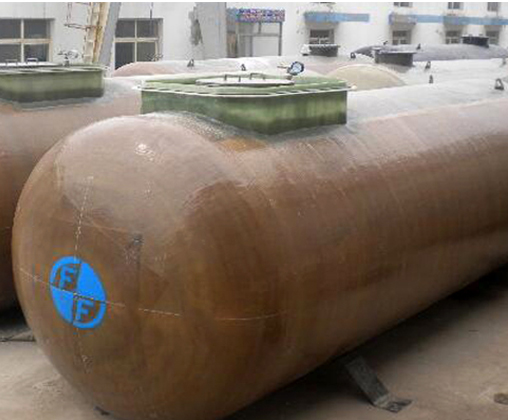
Cryogenic Liquid Storage Tanks: Vacuum Insulated Solutions for Efficient Storage
Cryogenic Liquid Storage Tanks: Vacuum Insulated Solutions for Efficient Storage
Introduction
Cryogenic liquid storage tanks, utilizing advanced vacuum insulation technology, are engineered for the safe and efficient storage of liquefied gases at extremely low temperatures. These tanks are indispensable across various industries, including healthcare, manufacturing, research, and aerospace, for storing substances like
Email: sales@jianshentank.com
Wechat/Whatsapp: +86 15517238365
Add: NO. 591 WENFENG ROAD, WENFENG DISTRICT, ANYANG, HENAN, CHINA
Cryogenic Liquid Storage Tanks: Vacuum Insulated Solutions for Efficient Storage
Introduction
Cryogenic liquid storage tanks, utilizing advanced vacuum insulation technology, are engineered for the safe and efficient storage of liquefied gases at extremely low temperatures. These tanks are indispensable across various industries, including healthcare, manufacturing, research, and aerospace, for storing substances like liquid oxygen (LOX), liquid nitrogen (LN2), liquid argon (LAr), and liquid carbon dioxide (LCO2). Proper storage is critical to maintain the liquid state of these materials and prevent loss due to evaporation, ensuring their availability for a wide range of applications.
Understanding Liquid Storage Tank Designs
The design and construction of cryogenic liquid storage tanks are tailored to specific process requirements and the characteristics of the stored medium. Broadly, these tanks can be categorized into three main types:
Single-Container Tanks: These represent a simpler design, typically featuring a steel inner tank surrounded by an insulating outer shell. The insulation material, often perlite or a similar substance combined with a vacuum, minimizes heat transfer. This design is often chosen for smaller-capacity tanks or where cost considerations are paramount.
Double-Container Tanks: A more robust design, double-container tanks incorporate both a steel inner tank and a steel or concrete outer tank. The space between the inner and outer tanks is filled with high-performance insulation materials and evacuated to create a vacuum, providing superior thermal insulation. This configuration is widely used due to its enhanced performance and safety features. The outer tank, particularly when constructed of prestressed concrete, provides added structural integrity and containment capabilities.
Full-Container Tanks: Similar to double-container tanks, full-container tanks also utilize an inner and outer tank construction. However, the key difference lies in the outer tank's design, which is specifically engineered to contain the full volume of the stored liquid in the event of an inner tank failure. This design is typically reserved for very large-capacity tanks storing hazardous materials, prioritizing maximum safety and environmental protection.
The selection of the appropriate tank type depends on factors such as the volume of liquid to be stored, the properties of the liquid (e.g., flammability, toxicity), site-specific safety requirements, and budget constraints.
Cryogenic Liquid Tank Parameter Overview
The following table provides an overview of the parameters for various cryogenic liquid storage tank models. It's crucial to consult with qualified engineers to determine the optimal tank specifications for your specific application.
(Note: values are subject to change, always verify with the manufacturer)
| Model | Working Pressure (MPa) | Working Medium | Volume (m3) | Approximate Outside Size (mm) | Approximate Weight (kg) |
|---|---|---|---|---|---|
| CFL5/0.8 | 0.8 | LOX, LN2, LAr | 5 | φ2000*5130 | 3412 |
| CFL10/0.8 | 0.8 | LOX, LN2, LAr | 10 | φ2100*7170 | 5378 |
| CFL20/0.8 | 0.8 | LOX, LN2, LAr | 20 | φ2500*8760 | 8255 |
| CFL30/0.8 | 0.8 | LOX, LN2, LAr | 30 | φ2900*8960 | 12899 |
| CFL50/0.8 | 0.8 | LOX, LN2, LAr | 50 | φ3100*12060 | 18960 |
| CFL100/0.8 | 0.8 | LOX, LN2, LAr | 100 | φ3600*17250 | 34480 |
| CFL5/1.6 | 1.6 | LOX, LN2, LAr | 5 | φ2000*5130 | 3945 |
| CFL10/1.6 | 1.6 | LOX, LN2, LAr | 10 | φ2000*7930 | 6787 |
| CFL20/1.6 | 1.6 | LOX, LN2, LAr | 20 | φ2400*9680 | 10744 |
| CFL30/1.6 | 1.6 | LOX, LN2, LAr | 30 | φ2700*10500 | 14640 |
| CFL50/1.6 | 1.6 | LOX, LN2, LAr | 50 | φ3000*12760 | 23370 |
| CFL5/2.16 | 2.16 | LCO2 | 5 | φ2000*4250 | 4450 |
| CFL10/2.16 | 2.16 | LCO2 | 10 | φ2100*7130 | 6986 |
| CFL20/2.16 | 2.16 | LCO2 | 20 | φ2500*8760 | 11328 |
| CFL30/2.16 | 2.16 | LCO2 | 30 | φ2900*8960 | 17961 |
| CFL50/2.16 | 2.16 | LCO2 | 50 | φ3200*11300 | 26097 |
| CFL100/2.16 | 2.16 | LCO2 | 100 | φ3500*18250 | 49627 |
Note: Outside size is for reference only. Actual sizes might vary, please confirm with manufacturer
Quality and Compliance
HNJS is committed to providing cryogenic liquid storage solutions that meet the highest standards of quality, safety, and performance. We hold national-level A2 pressure vessel manufacturing licenses, D1/D2 pressure vessel design licenses, ISO9001 International Quality System Certification, GC2/GC3 pressure piping design licenses, GC2/GC3 pressure piping installation licenses, and a comprehensive suite of qualifications for supporting engineering design, installation, inspection, and maintenance. Our products also undergo rigorous testing and certification, including CCS authentication, CE marking, and ASME compliance, ensuring adherence to global industry regulations.
Conclusion
Cryogenic liquid storage tanks are critical infrastructure for industries that rely on the availability of liquefied gases. Selecting the right tank design, capacity, and materials is paramount for ensuring safe, efficient, and reliable storage. By understanding the different tank types and considering the specific requirements of your application, you can make an informed decision and invest in a solution that meets your needs for years to come. HNJS is dedicated to providing exceptional cryogenic liquid storage tanks, backed by extensive experience and a commitment to quality. Contact us today to discuss your specific storage requirements.













Comments